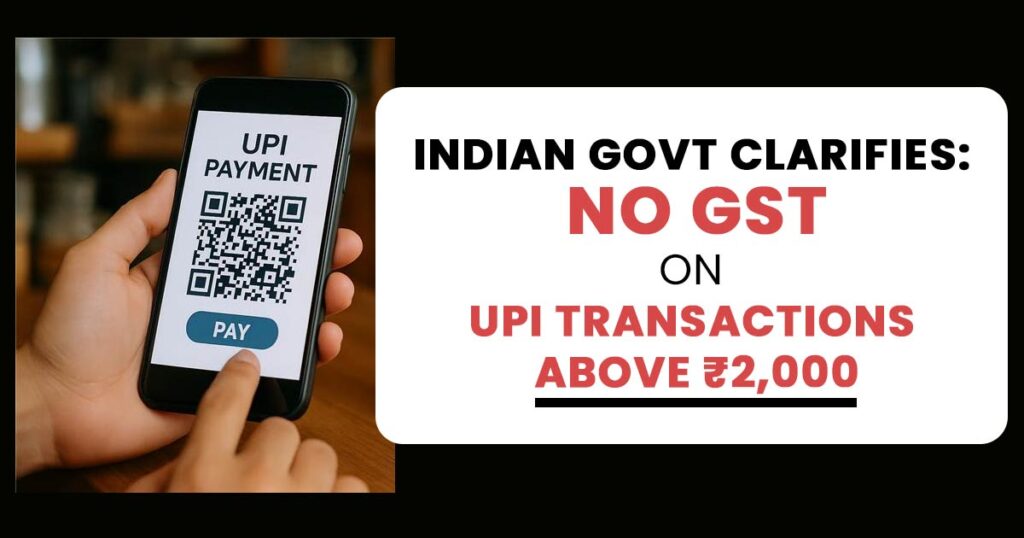No GST on UPI Transactions Above ₹2,000, Clarifies Government

No GST on UPI Transactions Above ₹2,000, Clarifies Government
Union Minister dismisses rumours after Karnataka traders receive demand notices
The central government has made it clear that there is no plan to impose Goods and Services Tax (GST) on UPI transactions above ₹2,000, quelling public concern after a series of GST demand notices were reportedly issued to small traders in Karnataka.
The clarification came from Minister of State for Finance, Pankaj Chaudhary, following reports that thousands of small-scale traders particularly vegetable vendors and roadside shopkeepers—had received GST demand notices based on their UPI transaction data. One notable case was that of Shankargouda Hadimani, a 48-year-old vegetable vendor from Haveri, who was served a notice demanding ₹29 lakh in GST dues. According to tax officials, over ₹1.63 crore had been credited to his account via UPI since 2021.
Hadimani, who runs a modest vegetable stall near the Municipal High School in Haveri, stated that the amount represented four years of cumulative sales from GST-exempt goods like fruits and vegetables. He said he has regularly filed income tax returns but never registered under GST since his goods fall outside the taxable bracket. Officials reportedly informed him that the notice would be withdrawn if he could provide proof that his goods were exempt.
The incident triggered widespread backlash and a political war of words. Union Minister Pralhad Joshi condemned the move, accusing the Karnataka Congress government of targeting the poor to fund its guarantee schemes. He claimed, “The Siddaramaiah government has run out of money and is now turning to street vendors to make up the gap.”
BJP leaders, including MLCs CT Ravi and N Ravi Kumar, echoed Joshi’s criticism, alleging that the state’s actions were undermining the central government’s Digital India initiative by penalising those who embraced digital payments.
On the other hand, Karnataka Chief Minister Siddaramaiah defended the state’s tax strategy, noting that over 40 percent of transactions in the state were digital and insisting that accountability must accompany digitalisation. He urged traders not to abandon digital platforms, asserting that higher GST collections lead to better public welfare investments.
The matter escalated when Deputy Chief Minister DK Shivakumar claimed the state had no role in the notices, a statement that was sharply rebuked by Joshi. “It was Karnataka’s own commercial tax officials who issued the notices,” he said. “If these notices were from the central government, traders in other states would have received them too. But this is happening only in Karnataka.”
Joshi further clarified that GST comprises two components, Central GST (CGST) and State GST (SGST)—with state governments having their own authority. He reiterated that the central government has not issued such notices, distancing New Delhi from the controversy.
The government’s assurance has provided some relief, but the episode highlights the growing tension between digital payment adoption and tax enforcement at the grassroots level.











